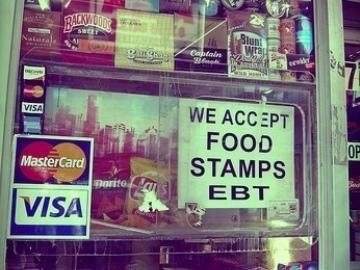
Section Branding
Header Content
Georgia May Take Lead On Drug Tests For Food Stamps
Primary Content

Georgia could soon be the first state in the nation to force welfare and food stamp recipients suspected of drug abuse to submit to drug tests. And because of that, it could face two potential legal challenges.
At the end of this year’s legislative session, lawmakers passed a bill that would require drug tests for some food stamps and welfare recipients. The bill would affect any recipient state officials suspected of having a drug problem.
Gov. Nathan Deal has until April 29 to sign or veto the bill. His spokesman, Brian Robinson, declined to comment on the potential legal repercussions of the bill or say if Deal will sign it.
It’s the second time in two years Georgia has passed legislation involving drug tests for some public benefit recipients. Deal signed the previous bill into law, but it was never implemented because a federal court blocked a similar law in Florida. It would have allowed the state to require drug tests of all welfare recipients. The 11th circuit federal court struck down the Florida law because justices said the state lacked grounds for reasonable suspicion that welfare recipients are likelier than the general population to abuse drugs.
Other states passed similar laws to Florida and Georgia, but none of them went back to the drawing board to see if adding the reasonable suspicion standard to the measure would pass constitutional muster.
That will leave Georgia entering uncharted legal territory if Gov. Deal signs the bill, said Gerry Weber, an attorney with the Southern Center for Human Rights in Atlanta.
“No other state in the country has actually implemented a program involving so-called suspicion-based testing for TANF and food stamp applicants,” he said. “Georgia is really the guinea pig on suspicion-based testing for TANF and food stamp recipients.”
Welfare benefits are sometimes known as TANF, which stands for Temporary Assistance for Needy Families.
Weber says he thinks the bill will be subject to not one but two legal challenges: either a lawsuit either by the federal government or by a private citizen. The Food Stamp Act forbids states from adding eligibility criteria. And federal authorities already told Georgia lawmakers not to pass the law because of that.
Weber says the two potential challenges are reason enough that Deal should veto it.
“The possibility of federal intervention. The possibility of putting our food stamp program in jeopardy by adding an additional requirement,” he said. “There are lots of reasons for him to say, ‘Hey, let’s not be the guinea pig’.”
The bill’s supporters say the federal court ruling gives the green light to use reasonable suspicion in mandating drug tests. State employees who administer the benefits would rely on observation, police records and other factors to make their determinations.
But even some of the bill’s supporters express concern. Virginia Galloway of the conservative nonprofit, Faith and Freedom Coalition, backs the bill. But she questions the reasonable suspicion provision.
“I think it could really complicate things. I don’t know who is going to determine if they have a reasonable suspicion, that kind of thing,” she said. “It just seems a little dicey, you know, on how that would be interpreted and carried out. You know, you have to think about, when you’re making a law, not only is it constitutional but is it enforceable in a reasonable way.”
Nonetheless, Galloway stands by the philosophy behind the law
“You don’t want to give benefits to people who are deliberately abusing their own bodies and are unable to work,” she said.
Legislators adjourned last week. Deal has 40 days to sign or veto bills.
